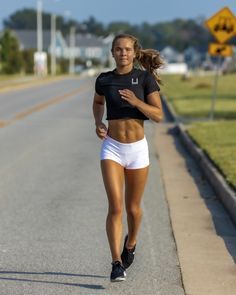
Nutrition for Bodyweight Athletes
Bodyweight athletes, who rely on their own bodyweight for resistance during training, have specific nutritional needs to support their performance and recovery. Whether you are a bodyweight enthusiast, a Calisthenics practitioner, or a gymnast, understanding proper nutrition can enhance your abilities and help you achieve your goals. In this article, we will explore the key components of a well-balanced diet for bodyweight athletes.
Protein Intake
Protein is essential for muscle repair and growth, making it a crucial component of a bodyweight athlete’s diet. Aim to consume a moderate to high amount of protein, depending on your training intensity and goals.
To calculate your protein needs, multiply your bodyweight in kilograms by 1.2-2.0 grams. For example, if you weigh 70 kilograms, your protein intake should range between 84 and 140 grams per day.
Include high-quality protein sources, such as lean meats, poultry, fish, eggs, dairy products, legumes, and tofu, in your meals. Protein supplements like whey protein powder can also be beneficial, especially after intense workouts when quick absorption is necessary.
Carbohydrates for Energy
As a bodyweight athlete, carbohydrates serve as your primary source of energy. Whole grains, fruits, vegetables, and legumes are excellent sources of complex carbohydrates that provide sustained energy for your workouts.
Aim to consume carbohydrates throughout the day, focusing on whole, unprocessed foods. These foods promote stable blood sugar levels and aid in effective energy utilization. Avoid excessive sugar intake from processed snacks and drinks, as they can lead to energy crashes and hinder your performance.
If you have intense training sessions or competitions, consider increasing your carbohydrate intake before and after these events. Carbohydrate-rich foods like pasta, rice, potatoes, and oatmeal can help replenish your glycogen stores and aid in muscle recovery.
Fats for Hormonal Balance
Fats play a vital role in hormone production and balance in the body, enhancing recovery and aiding in muscle growth. Including healthy fats in your diet is essential for bodyweight athletes.
Focus on consuming monounsaturated and polyunsaturated fats found in foods such as avocados, nuts, seeds, olive oil, and fatty fish like salmon. These fats provide essential fatty acids and support joint health, brain function, and overall well-being.
Avoid excessive consumption of saturated and trans fats, which can increase inflammation and hinder athletic performance. Limit your intake of processed and fried foods.
Hydration and Electrolytes
Proper hydration is crucial for optimal performance and recovery. Water helps regulate body temperature, transport nutrients to cells, and remove waste products. Ensure you drink enough water throughout the day, especially during training sessions.
If you have intense or prolonged workouts, consider consuming sports drinks or coconut water to replenish electrolytes lost through sweat. Electrolytes, such as potassium, sodium, and magnesium, are essential for maintaining muscle function and preventing cramps.
Pre- and Post-Workout Nutrition
Timing your meals and snacks around your workouts can maximize your performance and recovery as a bodyweight athlete.
Pre-Workout:
Consume a meal or snack containing carbohydrates and protein 1-2 hours before your workout to provide sustained energy. Opt for easily digestible foods like a banana with peanut butter or Greek yogurt with fruit.
Post-Workout:
After your workout, consume a combination of protein and carbohydrates within 30-60 minutes to replenish glycogen stores and support muscle repair. Whey protein shakes with a piece of fruit or a turkey sandwich on whole grain bread are excellent options.
Supplements for Bodyweight Athletes
While a well-balanced diet should provide most of the nutrients bodyweight athletes need, some specific supplements can enhance performance and recovery:
1. Creatine: This supplement can improve strength and power output during intense training sessions.
2. Omega-3 Fatty Acids: Taking omega-3 supplements can reduce inflammation and enhance recovery.
3. Vitamin D: Many athletes have low vitamin D levels, which can negatively impact performance. Consider getting your levels checked and supplement if necessary.
Conclusion
Nutrition plays a significant role in supporting optimal performance and recovery for bodyweight athletes. A well-balanced diet, focusing on adequate protein intake, healthy carbohydrates, and essential fats, can fuel your workouts and promote muscle growth. Remember to stay hydrated and consider supplements that can support your specific needs. By prioritizing your nutrition alongside your training, you can unlock your full potential and achieve your bodyweight fitness goals.